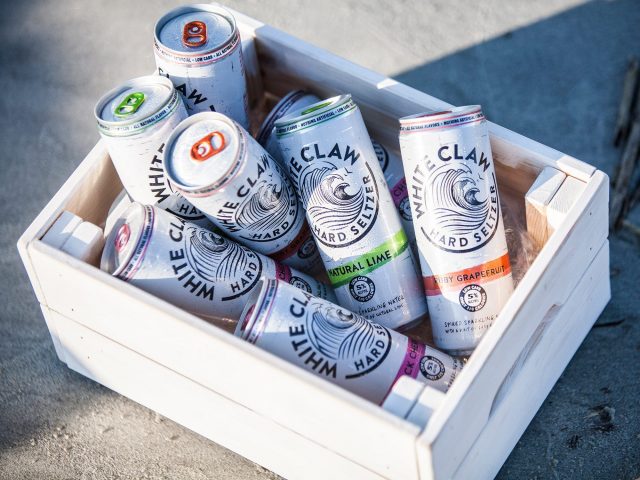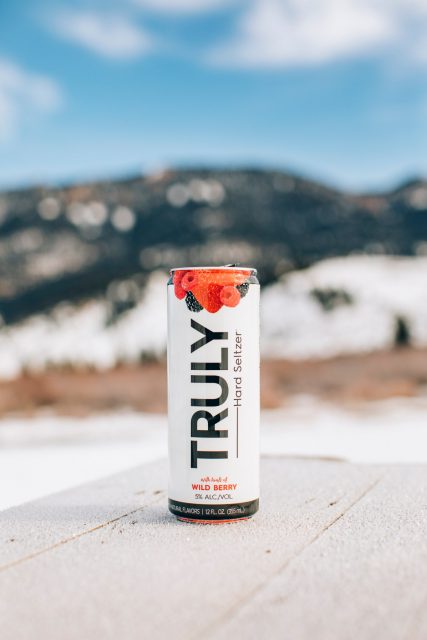This website uses cookies so that we can provide you with the best user experience possible. Cookie information is stored in your browser and performs functions such as recognising you when you return to our website and helping our team to understand which sections of the website you find most interesting and useful.
In focus: Is the hard seltzer boom starting to fizzle out?
With the hard seltzer market becoming increasingly crowded and sales failing to live up to expectations, we explore whether the category is already starting to lose its sparkle.

Are hard seltzers a huge development in the drinks market? Maybe not. That’s one interpretation of Boston Beer’s latest figures, which showed its second quarter earnings slumping well below expectations and the company cutting its forecasts, saying the hard seltzer boom is starting to fade.
Second-quarter profit slipped to US$4.75 a share, well short of the US$6.61 average of analysts’ estimates. Net sales rose to US$602.8 million, but still missed Wall Street’s expectations.
“The hard seltzer category and overall beer industry were softer than we had anticipated,” chairman Jim Koch said.
The hard seltzer market is struggling with fewer new users and a proliferation of new brands, which he said is leading to consumer confusion.

Boston makes Truly hard seltzer, which holds 28% of the US market and is second only to market leader White Claw from Mark Anthony Brands which has around 40% share.
All the big drinks companies are scrambling to get products on the market with, for instance, AB InBev suing Constellation Brands over the use of the Corona brand name at the same time as sinking $1 billion into production facilities.
But following Boston’s figures, its shares lost 20% of their value, more than wiping out gains so far this year.
Analysts now predict annual earnings of $18 to $22 a share, a $4 reduction at both the top and bottom of the range. They had pencilled in $24.40, according to Bloomberg.
While the hard seltzer sector continues to grow apace in absolute terms, one interpretation of Boston’s figures is that the upward curve could be flattening.
So it is significant that America’s eighth largest brewer has teamed up with Beam Suntory. They need each other.
The two plan to launch their first products within 12 months. In addition to a Truly spirit, the joint venture will also produce ready-to-drink (RTD) beverages under Beam’s Sauza Tequila banner.
Beam also owns the Jim Beam and Maker’s Mark bourbons, which provide a whiskey based range which could be distributed by Boston’s superior network, so the marriage could benefit both groups.
That is a translation of what Beam president and CEO Albert Baladi likely meant when he said: “We are each tapping opportunities in adjacent categories by unleashing our shared creativity and respective distribution strengths in spaces that resonate with consumers.”
The partnership will allow Boston to come out with a premium spirit-based product without investing in distilling plant while Beam can use Boston’s know-how and production facilities to begin catching up in ready-to-drink beverages.
Boston’s CEO David Burwick said: “Our industry is rapidly evolving, and consumers are looking for new and exciting options that suit a wide variety of occasions, and we couldn’t be happier to have found the perfect partner to extend our brands into the spirits category.”
So commentators think Boston has forged a good deal as there’s a good chance the hard seltzer trend is peaking, and may be reaching a saturation point.
There are so many brands on the market now it’s becoming difficult to stand out, and that is why Molson Coors, for instance, has already killed off its own Coors brand of hard seltzer to concentrate on its existing Vizzy line plus Topo Chico, the brand it recently launched with Coca Cola.
The hard seltzer market is turning out to be harder than originally thought.

